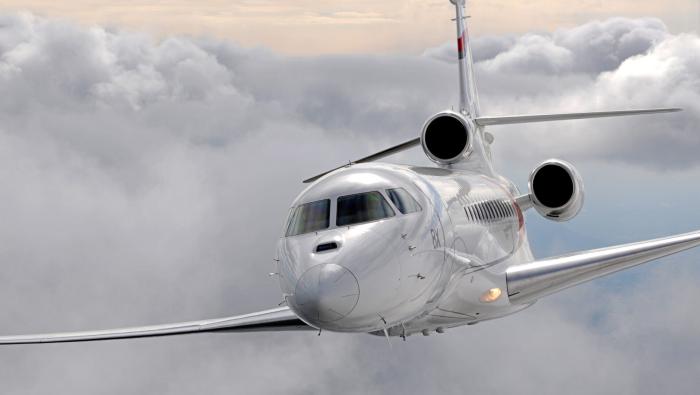General aviation manufacturer Textron Aviation comes to the 2019 Dubai Airshow with an emphasis on special missions aircraft, announcing a new option for the Beechcraft King Air 350 and a new role for the recently certified super-midsize Cessna Citation Longitude. The Wichita airframer will introduce an FAA-certified option for extending the nose of the 350 that provides 12 cubic feet of extra space and is capable of holding 250 pounds of extra equipment.
“We’ve actually delivered the first couple of them already and there are a lot of different missions possible with those,” Textron v-p of defense and special missions sales Bob Gibbs told AIN. “We’ve got different equipment we can put up there for different customers.” He declined to disclose the first customer for the extended-nose option.

The new equipment bay has a range of possibilities, he said. “We currently don’t have it certified as a baggage compartment, so it’s not for golf clubs, yet.” But Textron does have a proposal out on a potential medevac order in which the customer requires 3,000 cubic meters of oxygen. Textron is proposing to use that extra space for additional oxygen bottles. On medevac-equipped King Airs, Gibbs added, having the extended nose actually improves the 350's center of gravity because of all the equipment carried in the passenger compartment, such as the stretcher and medical monitoring equipment. He noted the additional space could also be used for special missions 350’s used for maritime patrol and other intelligence, surveillance and reconnaissance missions.
Textron is also using the show to announce that Japan’s Civil Aviation Bureau has ordered a Longitude for flight inspections, its first special missions application. “They needed the speed and the range of the [Longitude] and it was the best value for them,” Gibbs said, noting that the Japanese CAB already owns and operates Citation CJ4s.
He also added that the OEM’s first special missions Latitude in an air ambulance configuration has already proved successful with its new owner, Babcock Scandinavian Air Ambulance in Norway. “It scared everybody, how quickly it ramped up from when the operator took over that contract in Norway,” Gibbs said. “They and all of us expected a slow ramp up, and they flew something like 60 missions in the first week.” In its first 90 days of operation, Babcock’s Latitude has flown missions totaling 300 hours, Gibbs added.
With the new SkyCourier coming on line, followed by the Denali, Gibbs said there are more opportunities ahead for Textron’s special-missions business. The high-wing, twin-turboprop SkyCourier is “an airplane that we’re already looking at how to missionize so, very early on in the delivery process, we hope to have some specializations [and] customers that we can announce,” Gibbs said. Its first flight is expected in early 2020. Likewise, Textron is looking at potential applications for the single-engine turboprop Denali. “We have customers that are very interested in that platform for a lot of different missions,” he explained. “The engine that’s in it with the Fadec and low pilot workload are interesting to customers.”







